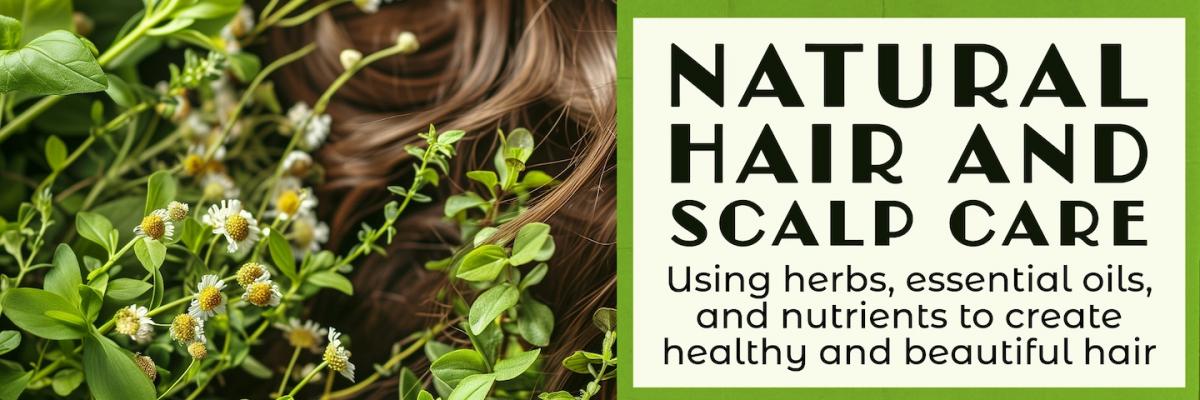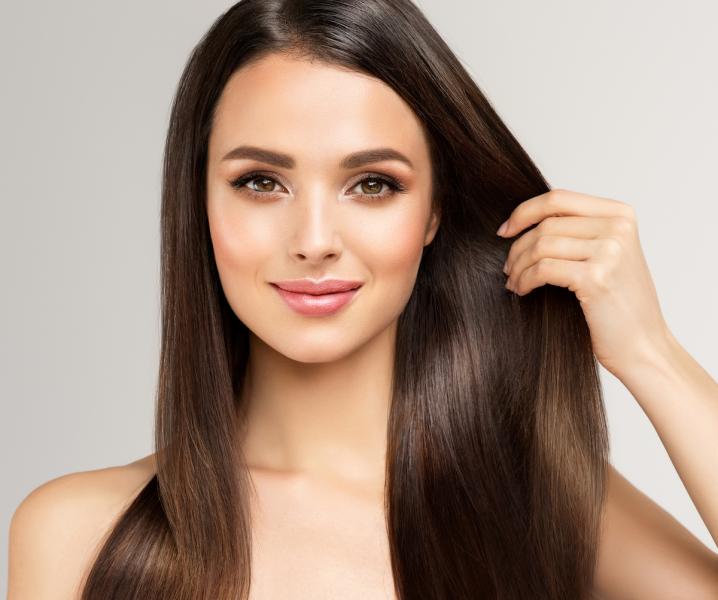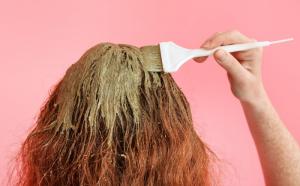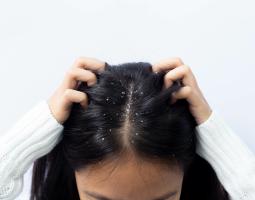
 Hair and scalp problems might not be life-threatening illnesses, but they do affect self-confidence and self-esteem and may also be external clues to internal health problems. In addition to problems like dandruff and itchy scalp being a constant annoyance, hair and scalp problems can indicate nutritional deficiencies, hormonal imbalances, and problems with circulation.
Hair and scalp problems might not be life-threatening illnesses, but they do affect self-confidence and self-esteem and may also be external clues to internal health problems. In addition to problems like dandruff and itchy scalp being a constant annoyance, hair and scalp problems can indicate nutritional deficiencies, hormonal imbalances, and problems with circulation.
Fortunately, there are many foods, herbs, and nutrients that can help you maintain or regain a healthy hair and scalp. Applied topically or taken internally these remedies can help you have healthier and more beautiful hair. In this issue of Sunshine Sharing, we’ll address these natural remedies for hair and scalp, discussing the various herbs, essential oils, and other natural methods you can use to resolve various hair and scalp problems.
Basic Hair and Scalp Care
Like every other part of the body, healthy hair requires good nutrition. So, the first thing to consider if you’re having problems with your hair and scalp isn’t what you put on your hair, but rather what you are putting into your body. Firstly, if your hair feels rough and tends to split, make sure you’re getting enough protein in your diet. If you aren’t, consider taking a collagen supplement. Collagen is a protein that helps promote the health of both hair and skin.
Second, you may also be lacking in minerals. Minerals like zinc and copper are responsible for hair color, so if you’re greying prematurely, you may be lacking certain minerals. Try taking a Colloidal Mineral Supplement or mineral rich herbs like alfalfa, horsetail, kelp, dulse, or nettles.
One mineral that’s particularly helpful for hair is silica. If you have frizzy hair, split ends, or your hair lacks body you may be deficient in silica. Other signs of silica deficiency include brittle fingernails that split or crack easily and thin, dull skin. Watkin’s Hair, Skin, and Nails Formula has helped many people with these problems. It contains two silica-rich herbs, horsetail and seaweed (kelp or dulse), along with rosemary and sage.
Another thing to consider is your digestion. As we age, we tend to develop low stomach acid and enzyme deficiencies. This makes it more difficult to digest and absorb proteins and minerals. If digestion is a problem consider taking a betaine hydrochloric acid (HCl) supplement or a Digestive Enzyme Formula containing HCl, pancreatin, bile salts, and enzymes.
A healthy thyroid is also necessary for the health of hair and scalp. For example, low thyroid is one factor that may cause hair loss. If your body temperature tends to be low, you should consider getting tested for low thyroid. If you do have a thyroid problem, a Hypothyroid Formula, containing seaweeds like kelp or dulse, or a Thyroid Glandular Formula may be helpful.
Stress also affects hair health. If you’re under a lot of stress and experiencing problems with your hair or scalp consider taking an Anti-Stress B-Complex Supplement containing B-vitamins and vitamin C. These nutrients help with stress and are also important for hair growth.
Both the scalp and the follicles in it that grow hair require good blood flow, so problems with circulation can also cause problems with the hair. Essential oils like rosemary, sage, eucalyptus, and tea tree promote blood flow to the scalp. Adding these circulatory enhancing oils to your shampoo will promote healthy hair as well as fight infections in the scalp.
Finally, it is important to choose healthy hair care products like shampoos and conditioners that don’t contain irritating chemicals such as parabens and formaldehyde. Avoid these harsh chemicals in favor of more natural ingredients. You can also choose products based on whether your hair tends to be dry, normal, or oily.
Become a Member
Steven Horne's monthly member program is a way for you to get great information about herbs and natural healing to build your herbal business. Including the ability to share issues of Sunshine Sharing like this one. Click here to learn more.


